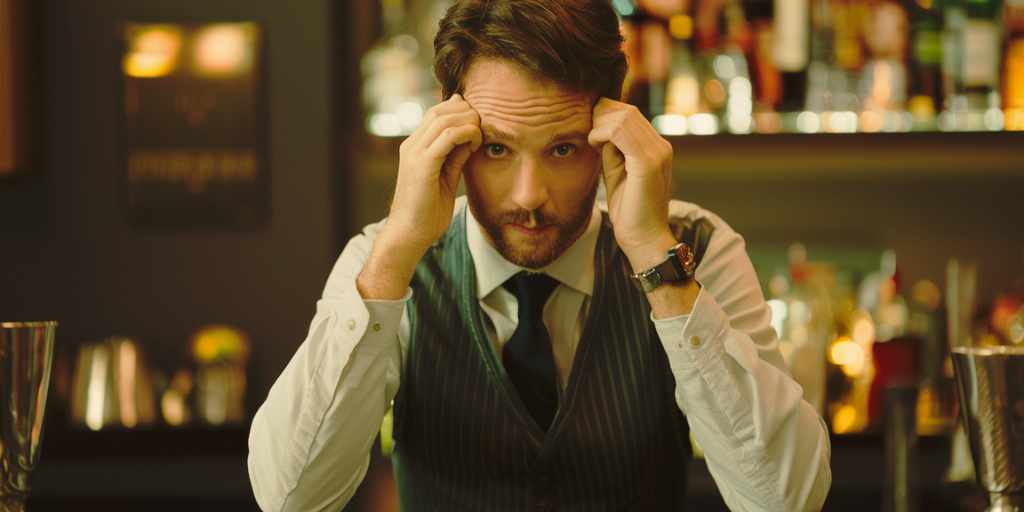When faced with a customer who has expressed dissatisfaction with a drink, it’s vital to approach the situation calmly and professionally. Bar staff and managers are often trained to handle these delicate scenarios since a well-addressed complaint can enhance a customer’s overall experience.
The immediate reaction should involve acknowledging the complaint without defensiveness, actively listening to the customer’s concerns, and evaluating the issue accurately.
Key Takeaways
- Active listening and swift acknowledgement of the complaint are crucial.
- Immediate and appropriate action should be taken to rectify the issue.
- Post-complaint follow-up can reinforce positive customer relations.
Assessing the Complaint
When a customer voices a complaint about a drink, the bartender or server needs to engage in a deliberate assessment process. First and foremost, listen fully to the customer. It’s imperative that they feel heard and that their concern is given full attention without interruption.
Steps in Assessing a Complaint:
- Acknowledge: Recognize the customer’s complaint immediately by nodding and maintaining appropriate eye contact.
- Clarify: Ask questions to understand the specific nature of the complaint. Is the drink too strong, too sweet, not what they expected?
- Evaluate: Assess the validity of the complaint in a neutral manner, considering common customer complaints and whether the drink met the standard quality and presentation.
- Restate: Paraphrase the customer’s concern to ensure no misunderstanding, demonstrating that their issue is being taken seriously.
Upon completing these steps, the staff should ascertain whether the complaint is due to an error in preparation or a mismatch between the drink and the customer’s expectations.
Every complaint is an opportunity to maintain the establishment’s reputation by demonstrating professionalism and a commitment to customer satisfaction.
Some other sources, like the Diageo Bar Academy, use HEAT (Hear, Empathise, Apologise, Take action), which is the same process; use whichever is easier to remember.
Immediate Response to the Complaint
When a customer complains about a drink, the immediate response should balance professionalism and empathy. Effective customer complaint resolution begins with two crucial steps: a sincere apology and attentive listening.
Offer a Sincere Apology
A sincere apology can go a long way in alleviating unhappy customers. It shows that the business takes the complaint personally and is committed to making things right. Employees should always apologize without making excuses, as this acknowledges the customer’s inconvenience and sets the stage for a constructive dialogue.
Listen and Acknowledge
The next step is to listen actively. This means giving the customer undivided attention, confirming their concerns, and letting them know they have been heard. It’s important to listen to their feedback fully before resolving the issue. This approach helps understand the exact point of contention and assess what the customers expect as a solution.
Resolving the Issue
When a customer complains about a drink, it is important to address the concern swiftly and effectively to ensure customer satisfaction and maintain the establishment’s reputation.
Identify the Problem
The first step is to listen carefully to the customer’s feedback to understand the specific issue, whether it’s the wrong drink, an error in taste, or any other dissatisfaction. Employees should ensure they comprehend what has led to the customer becoming disgruntled.
Involve Necessary Staff
Once the problem is identified, the relevant staff, such as the bartender or manager, should be promptly involved. Their involvement is crucial not only to deal with the current situation but also to prevent similar mistakes in the future.
Propose a Solution
Offering a solution might include remaking the drink correctly, providing a complimentary future meal, or issuing a refund. The manager should assure the customer that the error is taken seriously and that the fix will be delivered promptly.
Follow Through on the Resolution
After proposing a solution, staff must follow through with the resolution to the customer’s satisfaction. It should be confirmed that the issue has been resolved, leaving the customer feeling heard and their experience rectified.
Post-Complaint Follow-Up
Following a customer’s complaint about a drink, engaging in constructive follow-up actions is essential. These steps reinforce the commitment to quality service and customer satisfaction.
Gather Feedback for Improvement
After addressing the immediate concerns, solicit specific feedback from the guest regarding their experience. This can be done by having the staff member who served the drink ask probing questions or through a feedback form on the restaurant’s website.
The insights gained can guide improvements, be it in the drink mix, how alcohol is served, or the speed of service. Every piece of feedback contributes to the restaurant’s ability to prevent future issues and elevate the dining experience.
Provide Additional Support If Needed
If the problem with the customer’s order is substantial, the business may offer additional support. This could range from providing a replacement drink free of charge to offering a discount on the day’s meal.
When a customer has been disappointed, a sincere apology from the person who handled their request, accompanied by actionable solutions such as promptly creating a replacement with a more satisfying option, can be powerful.
The goal is to ensure the customer leaves not just content but impressed by the restaurant’s willingness to go above and beyond.
Common Mistakes Handling Customer Complaints.
In handling guest complaints, it’s crucial to avoid common pitfalls that can exacerbate the situation:
- Taking it Personally: It’s important not to internalize criticism. A guest’s dissatisfaction with a meal, drink, or product doesn’t reflect your abilities; it’s often just a matter of personal preference. Avoid reacting defensively or assigning blame to the guest.
- Avoiding Defensiveness: Guests can easily discern excuses, regardless of their validity. Guests expect consistent service regardless of how busy or understaffed the venue may be. Getting defensive only undermines the guest’s perception of your professionalism.
- Overpromising: While offering immediate solutions to complaints is tempting, it’s crucial not to make promises you can’t keep. Overpromising leads to unmet expectations and future grievances.
- Embracing the Guest’s Perception: Prioritize the guest’s perception as your reality. Complaints aren’t about right or wrong; they’re about ensuring each guest has a positive experience. Even if a drink is prepared perfectly to spec, if it doesn’t suit the customer’s preferences, remaking it to their liking can transform a negative experience into a positive one.
Bonus Managing Online Complaints
Some customers voice their complaints online rather than in person, and you can address their concerns effectively and turn the situation around.
- Thoroughly Review and Understand the Complaint: Before responding, take the time to read and comprehend the review thoroughly. Show empathy and try to see the situation from the guest’s perspective.
- Craft an Apologetic Response: Respond publicly to the complaint with a sincere apology acknowledging the guest’s concerns. Offer to discuss the matter further via private message or phone call to find a resolution.
- Demonstrate Commitment to Customer Satisfaction: By addressing the complaint publicly and offering to continue the conversation privately, you showcase your dedication to resolving issues promptly and ensuring customer satisfaction.
Frequently Asked Questions

How should staff react when a customer returns a drink for not meeting expectations?
Staff should listen attentively and acknowledge the issue. They need to determine the cause of dissatisfaction without making assumptions and take immediate action to rectify the situation.
What steps can be taken to resolve a drink-related complaint to the customer’s satisfaction?
A swift and courteous response is key. Staff may replace the drink, ensuring it meets the customer’s expectations, or offer alternatives that align with the customer’s preferences.
Should a bartender offer a complimentary drink if a customer is dissatisfied with their original order?
Offering a complimentary drink can be an effective way to show good faith and customer appreciation. It should be done at the bartender’s discretion or in accordance with the establishment’s policy.
How can staff ensure quality control in drink preparation to prevent complaints?
Bartenders should adhere to standard recipes and measurement procedures. They should also taste-test ingredients for quality regularly and maintain a clean and organized bar area.
What training should be provided to bartenders to handle drink complaints adeptly?
Bartenders should receive training on conflict resolution, drink preparation standards, and customer service best practices to manage and prevent drink complaints effectively.
What is the proper etiquette for bartenders when addressing customer concerns about drinks?
Bartenders should maintain a polite and professional demeanour, address the customer’s concerns directly, and assure the customer that their satisfaction is the bartender’s top priority.




